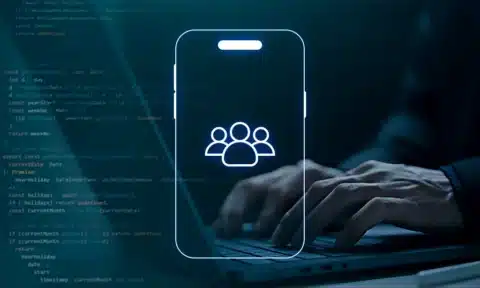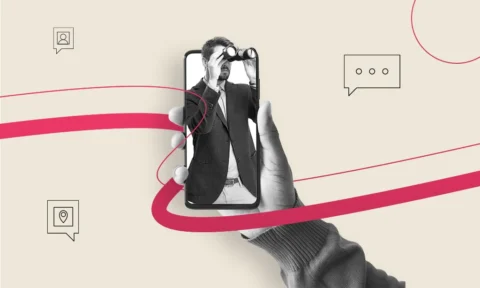Everybody who’s anybody has a mobile app these days. For businesses of any size, internal apps can serve plenty of purposes. You can use them for employee training, task management, accountability, and more.
So you’ve pulled together some great ideas, hired a developer, and built a useful app. How do you get your employees to use it?
Sure, you could go the employment obligation route and deal with the moans and groans. Or you could make it fun with corporate gamification techniques. Here’s what you need to know.
What is Corporate Gamification?
Yes, it’s as simple as it sounds. Gamification means turning a task into a game.
When it comes to your business app, there are plenty of ways to gamify it depending on its purpose and format. The easiest option is to institute a point system for completed tasks.
Does Gamification Matter?
Turning your app’s tasks into a game seems like such a minor detail, but it can make a massive difference. Here’s how:
1. The Motivation for Enjoyment
The most obvious benefit is also the most effective for some of your employees: they enjoy it. Turning mandated tasks into a game makes it more fun, and that alone will motivate employees to keep up.
2. The Science of Rewards
Rewards motivate people, and research about rewards has proven it time and time again.
There are two types of motivation: intrinsic and extrinsic motivation. Intrinsic motivation comes from your desire to do a task, either because you enjoy it or because you get a sense of accomplishment.
Extrinsic motivation comes from external factors. For instance, if you do a job for a paycheck, that’s a type of extrinsic motivation.
Rewards in your app will play on both types of motivation. As employees see their points climb, it gives them a sense of accomplishment.
The points can serve as a type of extrinsic motivation whether they have real-world value or not. Even if the points don’t translate to any perks, employees will feel like they’re getting something for their efforts.
3. Creating a Cycle
If you want to get some ideas about how to implement gamification, check out casual video games. Rather than big-name games, casual games include games like Candy Crush that people play on their phones.
In Candy Crush, for instance, hitting certain milestones gives you power-ups in the games. Those power-ups allow you to beat more levels and reach more milestones. It’s a pattern that repeats over and over.
You can implement the same type of philosophy in your business app development process. As employees get points, they can reach various levels. When they hit those levels, it lets them earn points at a faster rate, or it gives them bonus points.
4. Develop Relationships Between Co-Workers
So far, we’ve talked about the ways your app can benefit individual employees. You stand to gain something else with gamification, too, though: a more cohesive team.
There are two ways you can use this in your app: a competitive game or a cooperative game. Depending on your employees’ personalities, either one can work well for team building.
Competition
In a competitive game, you could institute a leaderboard where employees can see where their points rank among their co-workers. Depending on the app’s format, you might need to differentiate between new employees and those who have been able to work on the app for years.
If your employees have a competitive streak, this can drive a healthy and friendly atmosphere. Be careful to make sure you don’t add a way for employees to sabotage each others’ progress, though. That could create animosity rather than competition.
Cooperation
Another option is to make the game cooperative. Depending on your company size, give the employees a collective goal to aim for.
For example, give the employees a goal to hit a certain number of points each quarter. You can give them an incentive for added motivation, but it’s not always necessary.
On top of motivating employees to work with the app, it also motivates them to work together. The collective goal cements the idea that they’re a team.
5. Better Information Retention
One of the most popular reasons for businesses to use apps is employee training. No matter how much information your employees take in, though, training is pointless if they don’t retain it.
There’s one great way to increase memory retention, though: to make sure people enjoy what they’re learning.
Corporate gamification makes employees more engaged and invested in your app. When they’re more engaged, they’ll pay closer attention and remember more of what they learn.
Some companies try to enhance retention by requiring employees to take tests on the training materials. Keep in mind that this only improves short-term retention. After the test is over, your employees’ knowledge will be gone.
6. Happier Employees Make a Happier Workplace
A productive workplace is a delicate balance. If you start requiring employees to use an app that they dislike, it throws a flaw into the system. They may feel disrespected or mistrusted, and the grumbles start to grow.
Gamification can turn the lever in the opposite direction. It adds a bit of extra fun to your employees’ days and contributes to their overall job satisfaction.
As much as you enjoy a positive work environment, employee satisfaction translates to real dollars too. When employees leave, finding and hiring their replacements can be expensive.
You also don’t have to be as competitive in your salaries and benefits if you can attract and keep employees with a positive work culture. We wouldn’t suggest a pay decrease, but you won’t be under as much pressure for raises.
You also have to factor in how productive your employees will be. Happier employees are more energized, and they tend to put out more work that’s higher in quality. It’s a win for everyone.
Gamifying Your Business Apps
Your business app serves a vital purpose, whether it’s accountability or employee training. If the employees see it as a burden, though, it could backfire. Spicing it up with corporate gamification can turn it around and make your app fun to use.
To bring in a professional to help you gamify your app, contact our professional developers.



